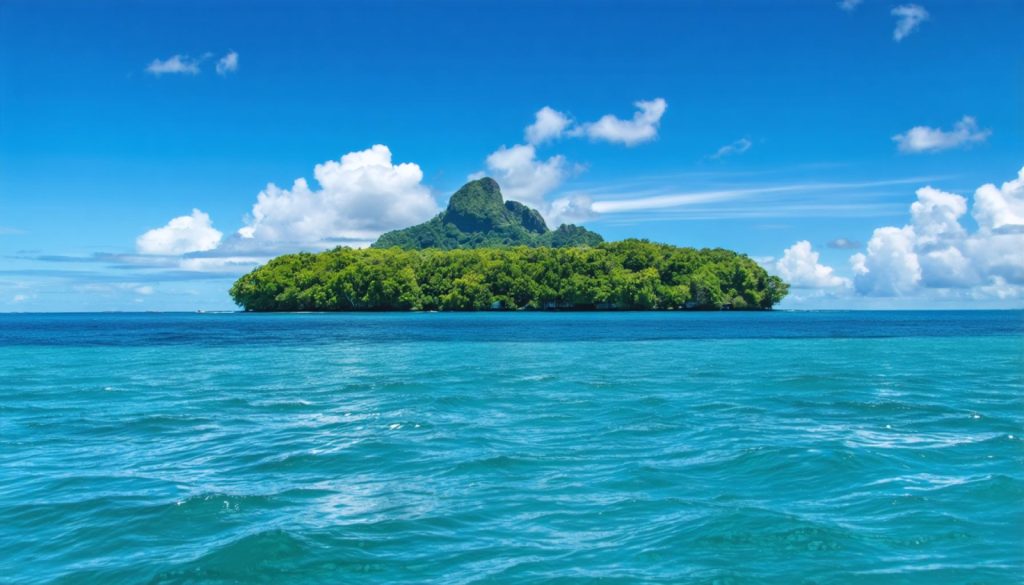
- Palau is emerging as a significant player in offshore finance, balancing economic opportunity with global regulatory standards.
- With few natural resources, offshore banking provides a promising avenue for economic growth beyond tourism and fishing.
- The Palauan government is crafting policies to attract foreign investment while avoiding becoming a tax haven for illicit activities.
- Palau prioritizes international compliance to maintain legitimacy and attract ethical investors, not seeking to become a modern-day pirate’s chest.
- The development of offshore banking in Palau could lead to job creation and increased foreign currency inflows, benefiting the local economy.
- Palau’s approach serves as a model for other small nations navigating the challenges of global finance and ethical economic progress.
Nestled in the tranquil heart of the Pacific Ocean, Palau boasts stunning turquoise waters and lush tropical landscapes that captivate the senses. But beneath its serene facade lies a whirlwind of intrigue: the island nation’s emerging role as a player in the offshore tax world.
Palau, with its postcard-perfect scenery, seems an unlikely stage for the drama of international finance. Yet, as many global jurisdictions tighten their tax laws, small nations like Palau find themselves at a crossroads. Crafting tax policies that attract foreign investment without becoming havens for dubious financial activities is a delicate balancing act.
The story begins with Palau’s government recognizing the potential of offshore banking for boosting the local economy. With limited natural resources, Palau has sought avenues beyond tourism and fishing to bolster its financial resilience. Offshore banking emerged as a tantalizing opportunity.
Picture this: Quiet discussions in palm-thatched huts give rise to regulations designed to court international business yet ward off the shadowy figures of money laundering and tax evasion. Palau’s leaders dilligently sculpt their financial systems, striving for transparency while still maintaining attractiveness to global investors seeking tax relief.
Yet, this journey is fraught with challenges. International watchdogs and financial task forces keep a vigilant eye on nations entering the offshore banking scene. Palau’s policy architects, aware of this scrutiny, have constructed a framework that prioritizes compliance with international regulations. They aim to ensure that the nation is seen as a legitimate, above-board option, rather than a modern-day pirate’s chest.
Why does this matter? For citizens of Palau, offshore banking offers potential economic benefits like job creation and increased foreign currency inflows. For the rest of the world, it presents a case study in achieving equilibrium between nurturing economic growth and maintaining global ethical standards.
As Palau steady its course in the world of offshore finance, the narrative remains one of cautious optimism and conscientious growth. It isn’t about creating a tax haven shrouded in secrecy, but rather, a transparent opportunity for legitimate business endeavors.
The takeaway here is simple yet profound: In an ever-globalizing world, even the smallest nations can influence vast economic landscapes. Palau’s endeavor into offshore banking reflects a universal challenge—ensuring that progress aligns with ethical stewardship. As Palau continues to hone its policies, it serves as a beacon for other nations venturing into the complex dance of global finance. In doing so, the island strives to keep its paradise untainted, inviting not just visitors, but ethical investors to its shores.
The Hidden Depths of Palau: A Surfacing Player in Offshore Finance
Introduction
Palau, renowned for its natural beauty, is making waves in the offshore banking sector. As it attracts international investment, Palau walks a tightrope of boosting its economy while maintaining global financial standards. Below, we delve deeper into aspects not fully covered in the initial article, examining tools, trends, and strategies in Palau’s economic evolution.
Market Trends & Industry Outlook
1. Growing Offshore Industry:
– As global economies tighten tax regulations, jurisdictions like Palau offer viable alternatives. Market analysis forecasts that offshore banking could contribute significantly to the GDP of small island nations in the upcoming decade.
2. Compliance Innovations:
– Palau’s financial sector is at the forefront, employing technology to ensure compliance with international regulations. Blockchain is being explored for secure and transparent transactions, as recommended by financial consultants (source: Deloitte).
How-To Steps & Life Hacks
Starting Offshore Banking in Palau:
– Step 1: Research Financial Institutions
– Investigate Palau’s licensed banks to understand their services and compliance measures.
– Step 2: Engage Legal Experts
– Consult with legal advisors specializing in international finance to navigate regulations effectively.
– Step 3: Monitor Regulation Changes
– Stay informed about any legislative updates in Palau to ensure ongoing compliance.
– Step 4: Implement Best Practices
– Use industry standards for reporting and management to avoid risks of money laundering accusations.
Real-world Use Cases
1. Economic Diversification:
– Countries similar to Palau, like Seychelles, have successfully leveraged offshore banking to diversify their economies beyond tourism and natural resources.
2. Job Creation:
– The establishment of offshore banking facilities can lead to job creation in legal, financial, and technology sectors within Palau.
Pros & Cons Overview
Pros:
– Economic Growth: Offers new revenue streams and employment opportunities.
– Investor Attraction: Appeals to international businesses seeking tax efficiency.
Cons:
– Regulatory Risk: Scrutiny by international watchdogs can lead to restrictive measures.
– Ethical Considerations: Risk of association with malpractice if measures aren’t strictly enforced.
Security & Sustainability
– Security Protocols:
– Palau is reportedly increasing its cybersecurity measures to safeguard financial data and transactions, a move crucial for confidence in offshore banking.
– Environmental Sustainability:
– Palau prioritizes eco-friendly policies, ensuring that economic growth in offshore banking does not compromise its natural environment.
Controversies & Limitations
– Perception Issues:
– Despite efforts, Palau faces the challenge of overcoming the “tax haven” stigma. This perception can deter ethical investors if not managed correctly.
– Global Pressure:
– International bodies may pressure Palau to adopt more stringent regulations, potentially stifling the flexibility that attracts foreign business.
Conclusion & Quick Tips
Actionable Recommendations:
1. Transparency in Operations:
– Maintain and promote transparent operations to uphold reputational integrity.
2. Regular Audits:
– Conduct regular compliance audits to align with international standards.
3. Stakeholder Engagement:
– Engage with global financial organizations to stay ahead of regulatory standards and innovations.
Palau sets an example of balancing economic opportunities with ethical imperatives on the global stage. For those interested in learning more about the country’s financial ventures and ecotourism, visit the official Palau Government website. By embracing these strategies, Palau shows that even small nations can steer significant economic progress while preserving their pristine allure.



